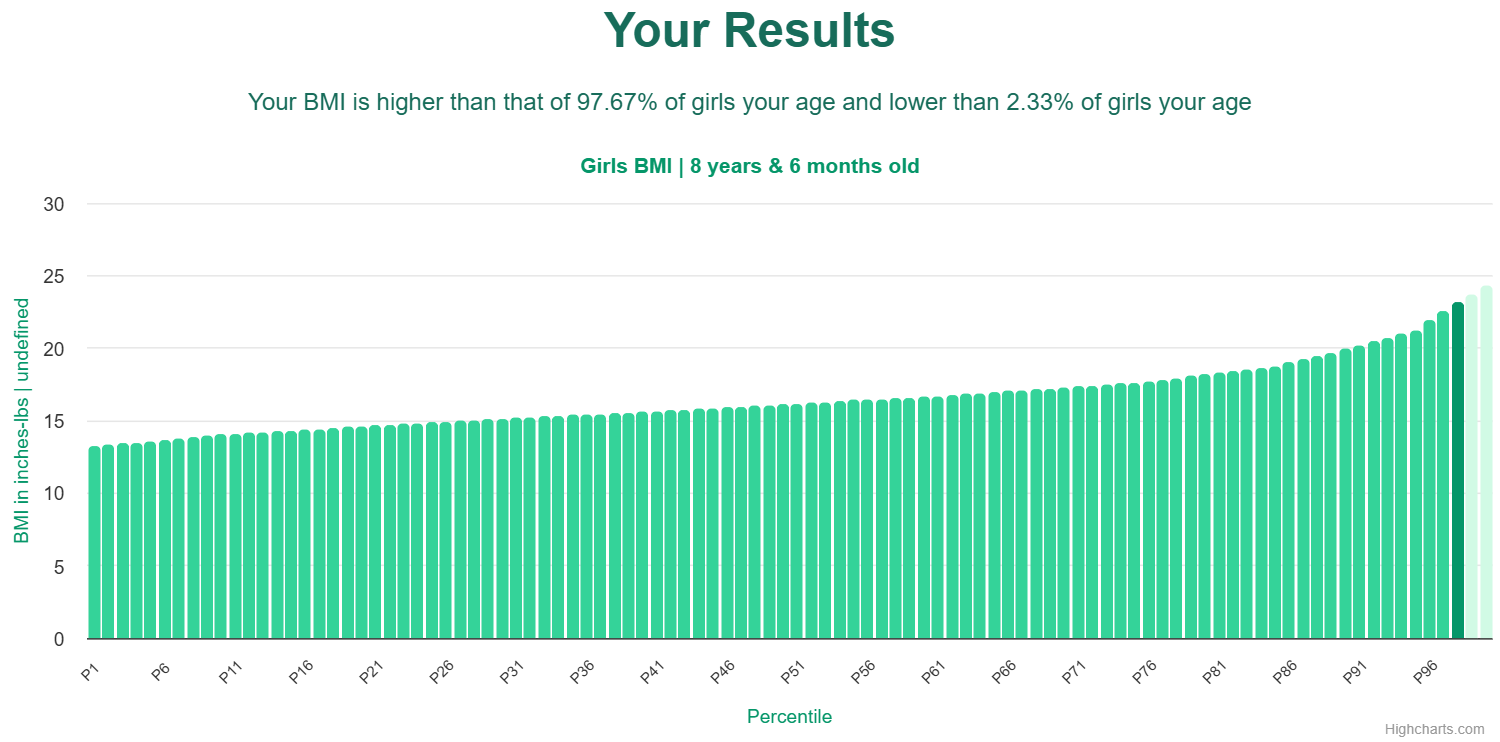Girls Weight chart in kgs for Children 8 years & 6 months old

General Summary: 8 years & 6 months old girls weight
In most cases, weight measurements for 8 years & 6 months old girls will be in the range between 20 and 41 kgs. The average weight for 8 years & 6 months old girls is 27 kgs, according to the CDC and anonymized data from users.
All Results
Enter your weight measurements above to see how they compare
So far, we have recorded [0] weight measurements for 8-years-6-months girls on LifeMeasure!
(chart updates daily)
See more ages